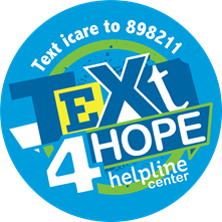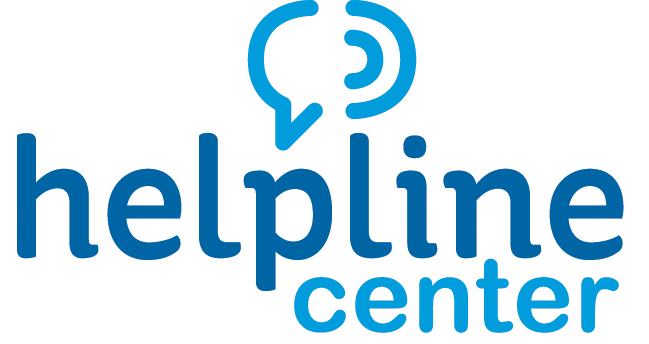I'm having suicidal thoughts
Remember you are not alone. No matter what problems you are experiencing, whether or not you’re thinking about suicide, or if you need someone to talk to for emotional support, call the crisis line. You can talk to someone now by calling the Crisis Line at 1-800-273-8255. Your call is confidential and free.
What to expect when calling the crisis line:
- First, you’ll hear a message telling you that you’ve reached the National Suicide Prevention Lifeline.
- Your call will be answered by a trained crisis specialist. This person will listen to you, understand how your problem is affecting you, provide support, and share any resources that may be helpful.
- Talking with someone about your thoughts and feelings can save your life.
If you or someone you know needs help with depression, relationships, drugs, alcohol or suicidal thoughts please call: 1-800-273-8255.
Mental illnesses are conditions that affect a person’s thinking, feeling, mood or behavior, such as depression, anxiety, bipolar disorder, or schizophrenia. Such conditions may be occasional or long-lasting (chronic) and affect someone’s ability to relate to others and function each day.
Mental health includes our emotional, psychological, and social well-being. It affects how we think, feel, and act. It also helps determine how we handle stress, relate to others, and make healthy choices. Mental health is important at every stage of life, from childhood and adolescence through adulthood.
Although the terms are often used interchangeably, poor mental health and mental illness are not the same things. A person can experience poor mental health and not be diagnosed with a mental illness. Likewise, a person diagnosed with a mental illness can experience periods of physical, mental, and social well-being.
- If you have — or think you might have — a mental illness, the first thing you must know is that you are not alone. Mental health conditions are far more common than you think, mainly because people don’t like to, or are scared to, talk about them.
- Mental Illness is one of the most common health conditions.
- 1 in 5 U.S. adults will experience a mental illness in a given year.
- 50% of all lifetime mental illness begins by age 14, and 75% by age 24.
- It is estimated that 22% of Americans will have a diagnosable mental illness at some point before they are 18 years old. In a group of 25 teens, this means at least 5 will experience a mental health challenge.
- 1 in 20 Americans live with a serious mental illness, such as schizophrenia, bipolar disorder, or major depression.
Mental Illnesses:
Each illness has its own symptoms, but common signs of mental illness in adults and adolescents can include the following:
- Excessive worrying or fear
- Feeling excessively sad or low
- Confused thinking or problems concentrating and learning
- Extreme mood changes, including uncontrollable “highs” or feelings of euphoria
- Prolonged or strong feelings of irritability or anger
- Avoiding friends and social activities
- Difficulties understanding or relating to other people
- Changes in sleeping habits or feeling tired and low energy
- Changes in eating habits such as increased hunger or lack of appetite
- Changes in sex drive
- Difficulty perceiving reality (delusions or hallucinations, in which a person experiences and senses things that don't exist in objective reality)
- Inability to perceive changes in one’s own feelings, behavior or personality (”lack of insight” or anosognosia)
- Overuse of substances like alcohol or drugs
- Multiple physical ailments without obvious causes (such as headaches, stomach aches, vague and ongoing “aches and pains”)
- Thinking about suicide
- Inability to carry out daily activities or handle daily problems and stress
- An intense fear of weight gain or concern with appearance
Mental health conditions can also begin to develop in young children. Because they’re still learning how to identify and talk about thoughts and emotions, their most obvious symptoms are behavioral. Symptoms in children may include the following:
- Changes in school performance
- Excessive worry or anxiety, for instance fighting to avoid bed or school
- Hyperactive behavior
- Frequent nightmares
- Frequent disobedience or aggression
- Frequent temper tantrums
Don’t be afraid to reach out if you or someone you know needs help. Learning all you can about mental health is an important first step.
Reference: nami.org/learn-more/mental-health-conditions/depression

The Helpline Center’s Text4Hope program provides crisis texting support for all high school students in the state of South Dakota. Since texting is the preferred means of communication for adolescents, offering a crisis texting program allows students to share their concerns privately with our trusted staff.
Students will typically text in to talk about a variety of issues such as suicidal thoughts, anxiety, depression, stress, concerns about a friend, relationship issues and family issues. With a simple text, individuals can connect with our professionally trained staff to receive support and resources.
The Helpline Center provides promotional materials (posters, referral cards) at no charge upon request for each high school to use with their students. Helpline Center staff also provide short presentations to the students to educate them about the texting program and suicide prevention. There is a speaking fee and travel expenses for the presentations.
If you would like a presentation or materials contact Betsy at betsy@helplinecenter.org or call 605-274-1408. Students can text icare to 898211 to reach Helpline Center staff. Help is available 24/7.
Know the warning signs
Warning signs are behaviors that indicate that someone may be at risk for suicide. These warning signs may be communicated directly or indirectly.
The following are not always communicated directly:
- Threatening to hurt or kill oneself
- Looking for a way to kill oneself, such as obtaining a gun or stockpiling medications.
- Talking or writing about death, dying or suicide, when these actions are out of the ordinary
Additional Warning Signs:
- Hopelessness
- No reason for living; no sense of purpose in life
- Talking about feeling trapped or in unbearable pain- like there is no way out
- Talking about being a burden to others
- Increasing the use of alcohol or drugs
- Anxiety, agitation
- Sleeping too little or too much
- Withdrawing from friends, family and society
- Acting reckless or engaging in risky activities
- Rage, uncontrolled anger, seeking revenge
- Dramatic mood swings
If you recognize some of the warning signs of suicide, there are steps you can take to help.
- Approach with compassion and care. Let them know that you care and you are available to listen and support them.
- Remove possible means to suicide, including drugs and alcohol, to keep the person safe.
- Make sure that all firearms are locked up during this time. The best option is to store firearms outside of the home.
- Medications should be stored out of reach and locked up.
- For more information see our Safeguard Brochure or call the Helpline Center at 1-800-273-8255.
- Enlist the help of others such as family and friends to assist you to support the person.
- Remember that you do not have to fill the role of a counselor. Encourage your loved one to utilize the professional support available to them.
If you or someone you know needs help with depression, relationships, drugs, alcohol or suicidal thoughts please call: 1-800-273-8255.






